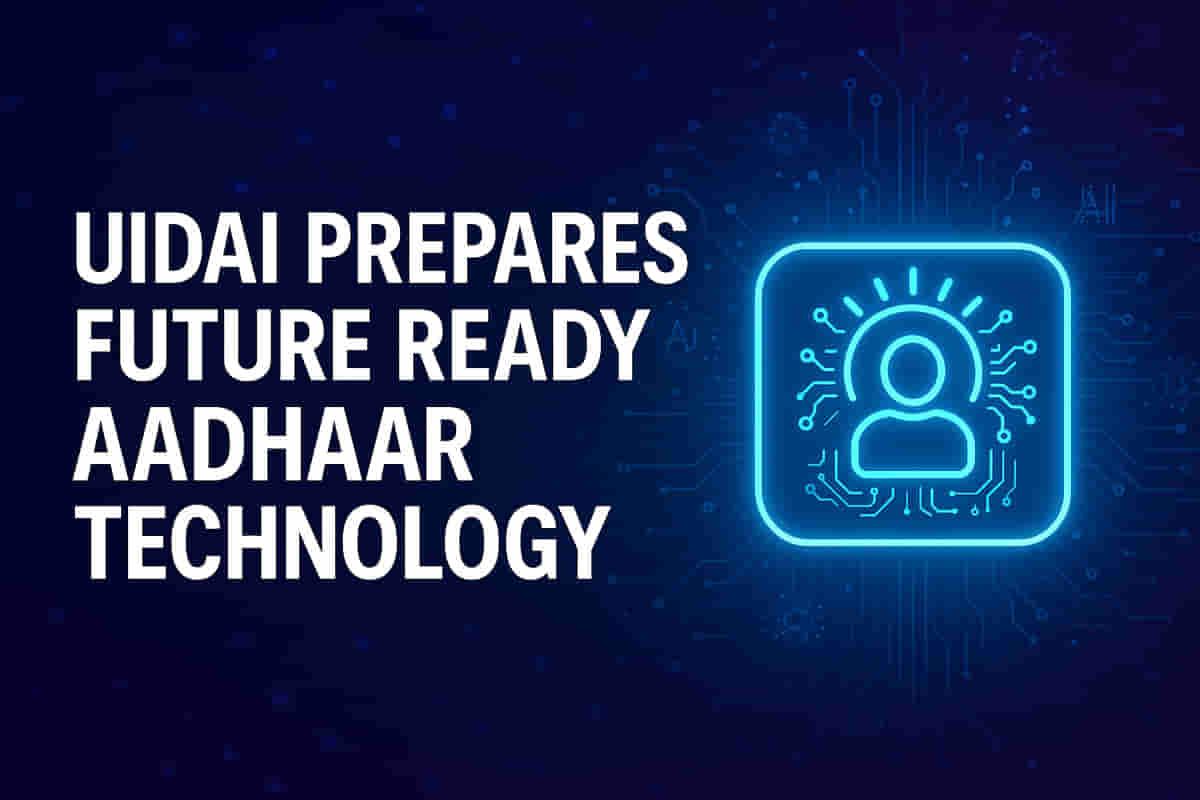UIDAI Forms Expert Panel for Future-Ready Aadhaar Technology Under 'Vision 2032'
Tech
|
31st October 2025, 5:51 PM

▶
Short Description :
Detailed Coverage :
The Unique Identification Authority of India (UIDAI) has announced the formation of a distinguished expert committee tasked with shaping the future evolution of Aadhaar technology. This strategic move, encapsulated under the 'Aadhaar Vision 2032' framework, aims to make the Aadhaar system more robust, secure, and adaptable to emerging technological landscapes and cybersecurity challenges over the next decade.
The committee, chaired by UIDAI Chairperson Neelkanth Mishra, comprises prominent figures from technology, academia, and legal sectors. Their primary objective is to outline a roadmap for next-generation Aadhaar architecture. This roadmap will ensure that Aadhaar not only maintains its technological leadership but also reinforces its role as a secure, inclusive, and people-centric digital identity solution for India.
A key focus will be integrating advanced technologies such as Artificial Intelligence (AI), Blockchain, Quantum Computing, and enhanced encryption techniques. This integration is crucial for improving scalability, ensuring data security, and building resilience against sophisticated cyber threats. Furthermore, the framework will be developed in alignment with India's Digital Personal Data Protection (DPDP) Act and international privacy and cybersecurity standards, ensuring compliance and trustworthiness.
Impact: This initiative is critical for India's digital infrastructure. By proactively upgrading Aadhaar's technology, the UIDAI is ensuring the foundational digital identity system remains secure, scalable, and compliant with future privacy regulations. This will foster greater trust in digital services and support the government's Digital India vision. The adoption of cutting-edge technologies could also spur innovation within related technology sectors in India. Impact Rating: 8/10
Difficult Terms Explained: Aadhaar: A unique 12-digit identification number issued by the UIDAI to residents of India, serving as proof of identity and address. UIDAI (Unique Identification Authority of India): The statutory body established by the Government of India to implement and manage the Aadhaar system. 'Aadhaar Vision 2032': A strategic framework created by UIDAI to guide the technological evolution and future development of the Aadhaar system over the next decade. Scalability: The ability of a system, network, or process to handle a growing amount of work, or its potential to be enlarged to accommodate that growth. Cybersecurity threats: Malicious attacks or damage targeting computer systems, networks, or digital data. Digital Personal Data Protection (DPDP) Act: An Indian law enacted to protect the personal data of individuals and regulate the processing of digital personal data. Artificial Intelligence (AI): The simulation of human intelligence processes by computer systems, including learning, problem-solving, and decision-making. Blockchain: A distributed, immutable ledger technology that records transactions across many computers, making them transparent and secure. Quantum Computing: A type of computation that harnesses the quantum mechanical phenomena of superposition and entanglement to perform calculations. It has the potential to solve complex problems intractable for classical computers. Advanced Encryption: Sophisticated methods used to secure data by converting it into a code that can only be deciphered with a specific key.